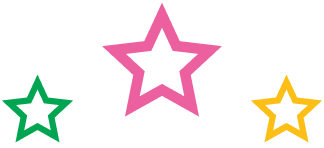
Head of the DPR Denis Pushilin at the Marathon Znanie.Pervye: “Global changes in the world began in Donbass”

The meeting of the head of the Donetsk People's Republic Denis Pushilin with young people took place on March 5 at the educational marathon Knowledge. The First of the Russian Society "Knowledge". The conversation about the difficult path of Donbass and the prospects for the development of the region as part of Russia became part of the thematic track “Saving the family for future generations.” Young people from different countries showed sincere interest in the topic, sought to learn details about life in new regions, and conveyed words of support to persistent people who had made their choice and are building a new life together with Russia.
Denis Pushilin met with the participants of the Marathon Znanie.Perye in the Nizhny Novgorod Pavilion of the World Youth Cities on the sidelines of the World Youth Festival in Sirius. In his opening speech, Denis Pushilin spoke about the main events in the history of Donbass, starting in 2014.
“In 2014, Donbass showed its will, independence and desire to develop together with Russia. This was the beginning of a difficult journey. Even the referendum on independence can be called a feat for the residents of the region, because the SBU was still operating in the territory at that time and coming to the polling stations was dangerous not only for leaders, but also for ordinary citizens. Then there were the first attempts to build statehood, the beginning of the Northern Military District and, finally, the entry of the DPR and LPR into Russia - the moment from which a new era began for us,” the head of the DPR emphasized.
According to Denis Pushilin, the events in Donbass began global changes in the world, the importance of which we have yet to realize in the future. The speaker noted that today the residents of Donbass have many reasons for optimism.
“Now our task is to join the big family of Russia. And as happens in a real family, we feel constant support. 27 regions of Russia are helping to restore our cities, for which we thank them very much. And Donbass will definitely not remain in debt, because we have something to give to the country: coal, mechanical engineering, chemical industry, and most importantly, our wonderful, persistent and talented people,” said Denis Pushilin.
The meeting participants came to the microphone to express words of support for Donbass. Thus, the representative of the French delegation, Alexander, admitted that many of his compatriots admire the courage of the residents of Donbass, and noted that not all French support the government’s policies. A similar opinion was expressed by Eduard from Germany, who said that most Germans would like to restore friendly relations with Russia. More often than others at the meeting, the guys asked the question “how to help Donbass?” Thus, Elmira from Astrakhan offered to bring seedlings to Donetsk to restore green spaces in the city, and a young entrepreneur from the Sverdlovsk region volunteered to help eliminate a solid waste dump in Debaltsevo. A similar question was asked by a guest from Latin America, Christian Golindo.
“The countries of Latin America are especially close to us because many of them have gone through similar experiences and suffered from the arbitrariness of the United States. Thank you for your support. And to answer your question, I will say this: help us through information. Tell us what you saw, tell the truth, don’t let the West set the rules of the game in the information field,” explained Denis Pushilin.
There were many other questions: about the fight against terrorism, plans for the economic development of regions, youth policy and the peculiarities of life in the front-line zones. Anastasia from Donetsk asked the head of the DPR to express her opinion on at what age it is better to give birth to your first child.
“Everyone here has their own story. But I don’t think that when planning a child you need to rely on age. Rather, it’s like this: they’ve created a family, which means they can already think about their first child. And then about the next child. Remember, our ancestors had seven children. A large family is a strong support. And when a couple has one child, life is boring for him. Of course, at the regional level we will invest a lot of effort in supporting families, creating all the conditions to make people feel comfortable. And then, maybe, we’ll write instructions at what age to get the first one, and at what age the second one,” Denis Pushilin joked.
Also on March 5, on the fourth day of the educational marathon Znanie.Pervye lecturers on the thematic track “Saving the family for future generations” were the Commissioner for Children's Rights under the President of the Russian Federation Maria Lvova-Belova, Director General of the Roscosmos State Corporation Yuri Borisov, Chairman of the Board PJSC "Sberbank" German Gref, head of the department of materials science of semiconductors and dielectrics at MISIS University, professor at Skoltech, two-time winner of the "Znanie.Award" Artyom Oganov, Serbian and Russian actor Milos Bikovich, singer and TV presenter Olga Buzova and a lot others.
The Russian Society "Knowledge" is the general partner of the educational program of the World Youth Festival. The educational marathon Znanie.Pervye of the Russian Society "Knowledge" is one of the main events of the educational program. Marathon takes place in Sirius from March 2 to 6 and covers six sites of the World Youth City: WYF International Airport, Yamal, Nizhny Novgorod, Kazan, Belgorod, and Moscow pavilions. The tracks of the marathon are in line with the Festival: "Responsibility for the fate of the world", "Multinational unity", "A world of opportunity for everyone", "Saving the family for future generations" and "We stand together with Russia". The most striking presentations of lecturers can be seen on the 24-hour media channel https://russia.znanierussia.ru/tv/Znanie.TV.
Along with the educational marathon Knowledge.First, within the educational program of the World Youth Festival, the Knowledge Society organized the intellectual tournament Znanie.Igra, the film lecture Hall Znanie.Kino, and for festival participants there is a multimedia exhibition of the national photo competition Znanie.Russia, where you can see the main achievements of Russia in the 21st century and immerse yourself in their atmosphere using augmented reality technology.
The World Youth Festival shall become a platform for communication between young people from Russia and other countries. After the completion of the events on the Sirius Federal Territory, Russian Knowledge Society will continue the educational line of the World Youth Festival from March 10 to 17 within the framework of the regional program WYF 2024, which will cover all federal districts of our country.
***
Overview:
The World Youth Festival is held in accordance with the Decree of Russian President Vladimir Putin to develop international youth cooperation. At the first meeting of the Organizing Committee chaired by Sergey Kiriyenko, First Deputy Chief of Staff of the Presidential Administration, it was decided to hold the Festival in the Sirius Federal Territory.
20,000 young leaders in education, science, international cooperation, culture, volunteering, charity, sports, business, media, etc., including 10,000 foreign participants, will take part in the WYF 2024. For the first time in the history of the festival movement, teenagers from 14 to 17 years old had the opportunity to join the event, including 500 from Russia and 500 from abroad. 5,000 volunteers from all regions of Russia, including 228 residents of the LPR, DPR, Zaporizhzhia and Kherson Regions be involved in the organization and delivery of the Festival. The organizer of the World Youth Festival is the Federal Agency for Youth Affairs (Rosmolodezh), the operator of the WYF-2024 is the Directorate of the World Youth Festival.
The first federal education marathon was held in May 2021 and became a symbol of the reboot of the Russian Knowledge Society. More than 850 lecturers shared their experience during the marathon.
The Russian Knowledge Society traces its history back to the Soviet public organization founded in 1947 on the initiative of representatives of the Soviet intelligentsia as the All-Union Society for the Dissemination of Political and Scientific Knowledge (since 1963 — the All-Union Knowledge Society, since 1991— the Knowledge of Russia Society). Members of the Society were engaged in popularizing science and lecturing on the achievements of the Soviet economy and industry. In 2016, Knowledge of Russia was transformed into the Russian Knowledge Society. On April 21, 2021, Russian President Vladimir Putin announced the need to restart the Russian Knowledge Society on a modern digital platform in his address to the Federal Assembly of the Russian Federation.
Back to news

